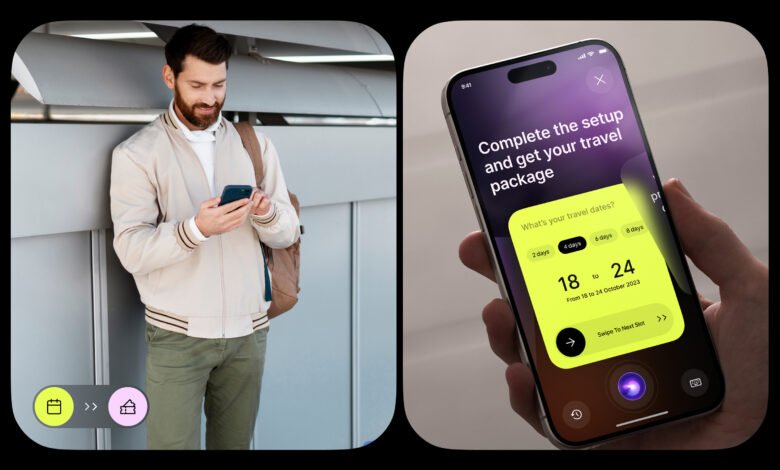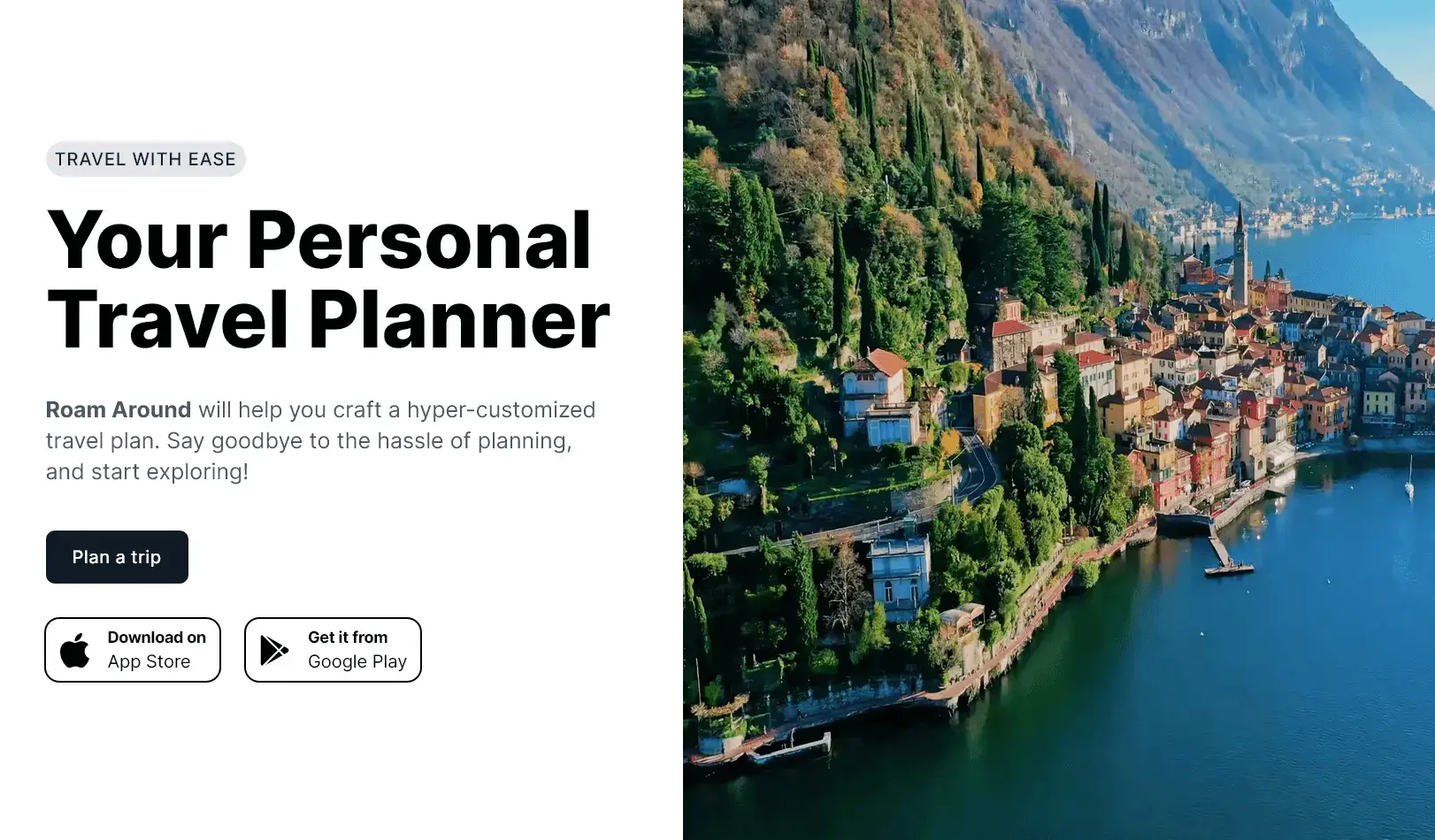
The travel industry has undergone a revolutionary transformation with the emergence of AI travel apps that can plan perfect trips automatically. Gone are the days when travelers spent countless hours researching destinations, comparing prices, and crafting detailed itineraries. Today’s sophisticated artificial intelligence travel planning tools have democratized trip planning, making it accessible to everyone regardless of their travel expertise or available time.
These innovative AI-powered travel apps leverage machine learning algorithms, big data analytics, and user preferences to create personalized travel itineraries within minutes. From solo adventurers seeking off-the-beaten-path experiences to families planning comprehensive vacations, smart travel planning apps cater to diverse travel styles and budgets. The technology analyzes millions of data points, including user reviews, seasonal trends, local events, and real-time pricing to generate optimized travel recommendations.
What sets the best automatic trip planning apps apart is their ability to understand nuanced preferences and create cohesive itineraries that feel authentically curated. These platforms don’t just suggest popular tourist attractions; they consider factors like travel pace, budget constraints, dietary restrictions, and personal interests to craft meaningful travel experiences. The integration of AI travel assistants with booking platforms has streamlined the entire process from inspiration to execution.
The market for intelligent travel planning software has exploded, with numerous applications claiming to offer the ultimate automated travel planning experience. However, not all AI travel tools deliver on their promises. Some provide generic recommendations while others lack comprehensive booking capabilities. This comprehensive guide examines the leading AI travel apps that consistently deliver exceptional automated trip planning experiences, helping travelers make informed decisions about which tools best suit their needs.
How AI Travel Apps Work: The Technology Behind Automatic Trip Planning
AI travel apps utilize sophisticated algorithms that combine multiple data sources to generate personalized travel itineraries. The foundation of these smart travel planning systems lies in machine learning models trained on vast datasets comprising traveler behavior, destination information, weather patterns, and seasonal trends.
The process begins when users input basic travel parameters such as destination preferences, AI Travel Apps dates, budget range, and activity interests. AI-powered travel platforms then analyze this information against their comprehensive databases to identify suitable destinations and experiences. Natural language processing capabilities allow these apps to understand conversational inputs, making the planning process intuitive and user-friendly.
Automatic trip planning algorithms consider numerous variables simultaneously, including flight availability, accommodation options, local transportation, restaurant recommendations, and activity scheduling. The AI systems optimize these elements to minimize travel time between locations while maximizing the quality of experiences within budget constraints.
Advanced AI travel assistants continuously learn from user feedback and booking patterns to refine their recommendations. This iterative learning process enables the platforms to provide increasingly accurate and relevant suggestions over time. Some applications incorporate real-time data feeds to adjust recommendations based on weather conditions, local events, or sudden changes in availability.
The integration of artificial intelligence travel planning with geographical information systems (GIS) enables these apps to create geographically logical itineraries. This prevents common planning mistakes like scheduling activities in distant locations on the same day or missing must-see attractions due to poor routing.
Top AI Travel Apps for Automatic Trip Planning in 2025
Mindtrip: The Most Comprehensive AI Travel Planner
Mindtrip stands out as one of the most sophisticated AI travel apps available in 2025, offering comprehensive automatic trip planning capabilities that rival professional travel agents. The platform excels in creating personalized travel itineraries that feel authentically curated rather than algorithmically generated.
The app’s strength lies in its conversational interface, which allows users to describe their travel desires in natural language. Whether planning a romantic weekend getaway or a month-long backpacking adventure, Mindtrip’s AI travel assistant understands context and nuance to generate appropriate recommendations. The platform integrates seamlessly with booking systems, enabling users to reserve flights, accommodations, and activities directly through the app.
Mindtrip’s collaborative features set it apart from other AI-powered travel apps. Multiple users can contribute to trip planning, making it ideal for group travel scenarios. The platform also offers social sharing capabilities, allowing users to showcase their AI-generated itineraries and inspire others with their travel experiences.
TripPlanner AI: Streamlined Automatic Travel Planning
TripPlanner AI focuses on efficiency and simplicity, making it one of the most user-friendly automatic trip planning apps in the market. The platform excels at transforming social media inspiration into actionable travel plans, particularly useful for travelers who discover destinations through Instagram, TikTok, or Pinterest.
The app’s AI travel planning algorithm analyzes saved content from various social platforms to identify common themes and preferences. It then translates these visual inspirations into comprehensive itineraries complete with logistical details and booking options. This unique approach bridges the gap between AI Travel Apps inspiration and execution.
TripPlanner AI offers robust customization options, allowing users to adjust generated itineraries based on changing preferences or constraints. The platform’s smart travel planning features include budget tracking, alternative activity suggestions, and real-time updates on pricing and availability.
Wonderplan: Free AI-Powered Travel Planning

Wonderplan democratizes AI Travel Apps planning by offering comprehensive automatic trip planning services at no cost. Despite being free, the platform delivers sophisticated personalized travel itineraries that rival paid alternatives. The app supports multiple trip types, from business travel to leisure vacations.
The platform’s AI travel assistant excels at understanding budget constraints and optimizing recommendations accordingly. Wonderplan provides detailed cost breakdowns for suggested activities and accommodations, helping users make informed decisions about their travel investments.
Wonderplan’s strength lies in its extensive database of global destinations and activities. The AI-powered travel platform covers both popular tourist destinations and emerging travel hotspots, providing users with diverse options for their adventures.
Layla AI: Conversational Travel Planning
Layla AI revolutionizes AI travel apps through its advanced conversational interface that mimics interactions with professional travel agents. The platform’s natural language processing capabilities enable complex discussions about travel preferences, constraints, and expectations.
The app’s automatic trip planning features include dynamic itinerary adjustment based on real-time factors such as weather conditions, local events, and seasonal variations. Layla AI continuously monitors travel conditions and proactively suggests modifications to optimize user experiences.
Layla’s AI travel assistant provides 24/7 support throughout the travel planning and execution phases. Users can modify itineraries, request alternative suggestions, or seek assistance with booking changes through the conversational interface.
iPlan.AI: Quick Itinerary Generation
iPlan.AI specializes in rapid AI Travel Apps planning, generating comprehensive itineraries within seconds of receiving user inputs. The platform’s efficiency makes it ideal for last-minute travel planning or quick weekend getaway organization.
The app’s smart travel planning algorithm focuses on creating logical geographical routing to minimize travel time between activities. iPlan.AI considers factors such as opening hours, seasonal availability, and crowd patterns to optimize scheduling recommendations. Despite its speed, iPlan.AI doesn’t sacrifice quality for efficiency. The platform provides detailed information about suggested activities, including user reviews, pricing, and booking requirements for each recommendation.
Benefits of Using AI for Travel Planning
AI travel apps offer numerous advantages over traditional travel planning methods, fundamentally changing how people approach trip organization. The most significant benefit is time savings, with automatic trip planning reducing planning time from days or weeks to mere minutes or hours.
Personalized travel itineraries generated by AI-powered travel platforms often uncover hidden gems and experiences that manual research might miss. These systems analyze vast amounts of data to identify activities and destinations that align with individual preferences while avoiding tourist traps and overcrowded attractions.
Budget optimization represents another crucial advantage of AI travel planning. These intelligent systems continuously monitor pricing across multiple platforms to identify the best deals on flights, accommodations, and activities. Smart travel planning apps can suggest alternative dates or destinations that offer similar experiences at significantly reduced costs.
AI travel assistants provide continuous support throughout the entire travel experience, offering real-time updates on flight delays, weather changes, or local events that might affect planned activities. This proactive approach helps travelers adapt to unexpected circumstances while maintaining the quality of their experiences.
The elimination of analysis paralysis is perhaps the most underrated benefit of automatic trip planning. By providing curated recommendations based on personal preferences, AI travel apps remove the overwhelming nature of infinite travel possibilities, enabling users to make confident decisions about their adventures.
Key Features to Look for in AI Travel Apps
When selecting AI travel apps, certain features distinguish superior platforms from mediocre alternatives. Comprehensive integration capabilities should be a primary consideration, as the best AI-powered travel platforms seamlessly connect planning, booking, and management functions within a unified interface.
Customization flexibility is essential for effective personalized travel itineraries. Superior automatic trip planning apps allow users to adjust generated recommendations based on changing preferences, budget constraints, or unexpected circumstances. The ability to fine-tune AI suggestions ensures that final itineraries align perfectly with individual needs.
Real-time data integration separates professional-grade AI travel planning tools from basic recommendation engines. The best platforms continuously update their suggestions based on current pricing, availability, weather conditions, and local events. This dynamic approach ensures that generated itineraries remain relevant and practical throughout the planning process.
Multi-user collaboration features are increasingly important as group travel becomes more common. Smart travel planning apps should support multiple contributors while maintaining coherent itinerary organization and decision-making processes.
Offline accessibility is crucial for international travel, where internet connectivity might be limited. The best AI travel assistants provide downloadable itineraries and essential information that remains accessible without an internet connection.
How AI Improves Travel Experiences
AI travel apps enhance travel experiences through intelligent optimization that considers multiple variables simultaneously. Unlike human planners who might focus on individual aspects of a trip, AI-powered travel platforms optimize entire itineraries holistically, considering factors such as energy levels throughout the day, transportation efficiency, and activity sequencing.
Automatic trip planning systems excel at identifying optimal timing for various activities. By analyzing crowd patterns, weather data, and seasonal trends, AI travel assistants can schedule visits to popular attractions during off-peak hours, ensuring better experiences and shorter wait times.
Serendipitous discovery represents one of the most valuable aspects of AI travel planning. These intelligent systems can identify connections between user preferences and unexpected experiences, leading to memorable moments that wouldn’t occur through conventional planning methods.
Smart travel planning algorithms consider cultural nuances and local customs when generating recommendations, helping travelers engage more authentically with destinations. This cultural sensitivity enhances the quality of interactions with local communities and provides deeper travel insights.
The continuous learning capabilities of AI-powered travel apps mean that each trip contributes to improved future recommendations. This evolutionary approach to travel planning ensures that user experiences become increasingly refined over time.
Challenges and Limitations of AI Travel Planning

Despite their sophisticated capabilities, AI travel apps face several limitations that users should understand before relying entirely on automatic trip planning. Data dependency represents the most significant constraint, as AI systems can only be as good as the information they access. Outdated or inaccurate data can lead to poor recommendations or booking failures.
AI travel planning algorithms may struggle with highly specialized or niche travel requirements. While these systems excel at mainstream travel scenarios, they might not adequately address unique needs such as accessibility requirements, specific dietary restrictions, or unusual hobby-related activities.
Cultural context poses another challenge for AI-powered travel platforms. While these systems can access factual information about destinations, they may miss subtle cultural nuances that significantly impact travel experiences. Local customs, unwritten social rules, and regional variations might not be adequately reflected in AI recommendations.
Over-reliance on AI travel assistants can reduce the personal growth and discovery aspects of travel planning. Some travelers find that the process of researching and planning trips contributes significantly to their overall travel enjoyment and cultural understanding.
Smart travel planning systems may also exhibit algorithmic bias, potentially limiting diversity in recommendations or overlooking certain types of experiences based on their training data patterns.
Tips for Getting the Best Results from AI Travel Apps
Maximizing the effectiveness of AI travel apps requires strategic input and ongoing engagement with the platforms. The quality of generated personalized travel itineraries directly correlates with the specificity and accuracy of initial user inputs. Providing detailed information about preferences, constraints, and expectations enables AI Travel Apps planning systems to generate more relevant recommendations.
Regular interaction with AI travel assistants throughout the planning process helps refine recommendations and identify potential improvements. Users should actively provide feedback on suggestions, as this information helps the algorithms learn and adapt to individual preferences.
Combining multiple AI-powered travel platforms often yields superior results compared to relying on a single application. Different platforms excel in various aspects of automatic trip planning, and cross-referencing recommendations can provide more comprehensive coverage of available options.
Maintaining flexibility in travel dates and destinations allows smart travel planning algorithms to identify optimal deals and experiences. Users who remain open to AI suggestions often discover superior alternatives to their initial preferences.
Verifying AI-generated recommendations through independent research ensures accuracy and helps identify any outdated or incorrect information. While AI travel apps provide excellent starting points, human verification adds an important quality control layer.
The Future of AI Travel Planning
The trajectory of AI travel apps points toward increasingly sophisticated and intuitive automatic trip planning capabilities. Integration with Internet of Things (IoT) devices will enable AI Travel Apps assistants to access real-time personal data such as fitness levels, stress indicators, and energy patterns to optimize travel recommendations accordingly.
Augmented reality integration will revolutionize how AI-powered travel platforms present destination information and recommendations. Users will be able to virtually explore suggested activities and accommodations before making booking decisions, enhancing confidence in AI-generated itineraries.
Advanced predictive analytics will enable smart travel planning systems to anticipate user needs before they’re explicitly stated. These proactive systems will suggest relevant add-ons, alternative activities, or timing adjustments based on predicted preferences and circumstances.
Voice-activated AI travel planning will become increasingly prevalent, allowing users to plan trips through natural conversations with their devices. This hands-free approach will make travel planning more accessible and convenient for users in various situations. Blockchain technology integration may enhance the security and reliability of AI travel apps while enabling more seamless sharing of travel experiences and recommendations across platforms.
More Read: How to Network Effectively at AI and Machine Learning Events
Conclusion
AI travel apps that plan perfect trips automatically have fundamentally transformed the travel industry, making sophisticated personalized travel itineraries accessible to travelers of all experience levels. These AI-powered travel platforms offer unprecedented efficiency, optimization, and personalization that traditional planning methods cannot match. While challenges exist regarding data accuracy and cultural context.
The benefits of automatic trip planning far outweigh the limitations for most travelers. As artificial intelligence technology continues advancing, we can expect even more sophisticated smart travel planning capabilities that will further enhance how we discover, plan, and experience travel. The key to maximizing these tools lies in understanding their capabilities, providing detailed inputs, and maintaining an appropriate balance between AI assistance and personal travel intuition.











